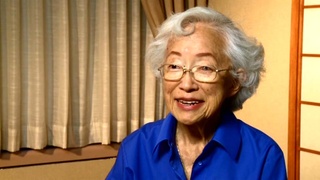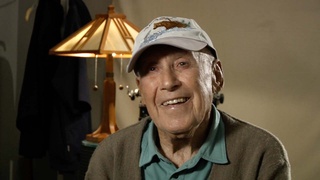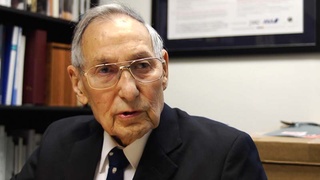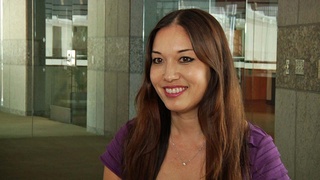Interviews
Didn't have rights that whites had
We didn’t have all the rights that caucasians had, and it was because of racism. And, of course, when December 7th happened, it was also hysteria, and Americans also looked at December 7th from a very economic point of view. I mean, Japan had been working the land. I mean, she was given only the worst kind of desert land and she made it fertile. And so, other farmers—caucasians—it would be to their advantage if the Japanese were thrown out, and they could work the land. Uh so, I think on what are the civil rights we lost: I think, well, we never had all the civil rights. Uh, and I think, that’s how come, too, that there came to be a group called the “No No Boys.” Because, they felt it was more important to fight for civil rights, than to fight the enemy. I think a lot of Japanese felt they weren’t treated like a real American.
Date: June 16, 2003
Location: California, US
Interviewer: Karen Ishizuka, Akira Boch
Contributed by: Watase Media Arts Center, Japanese American National Museum.
Explore More Videos

Discrimination for Nisei doctors
(1928–2016) Daughter of an Issei doctor

Going to camp with the Terminal Island people
(1927-2010) Political Activist

The lawsuit set the standard for restoring people’s rights
(1927-2010) Political Activist


Interned at age fifteen, I saw camp as an adventure
(1927-2010) Political Activist

Reception of Hamako by family
(1916 - 2013) Member of the U.S. Military Intelligence Service


Memories of Poston
(b. 1930) Half Japanese and grew up in both Japan and the United States.

Arriving at Poston
(b. 1930) Half Japanese and grew up in both Japan and the United States.



Writing a novel on the 442nd
Jewish Japanese American journalist

Meeting Hamako in Japan
(1916 - 2013) Member of the U.S. Military Intelligence Service

Meeting Mr. Amano
(1916 - 2013) Member of the U.S. Military Intelligence Service

Marriage and Returning to US
(1916 - 2013) Member of the U.S. Military Intelligence Service
